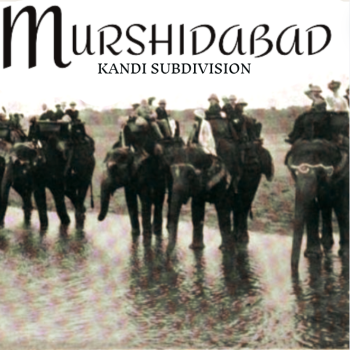 |
|
Remember us?
|
The envelope is navy blue, measuring 12 inches by 6 inches. The flap openings join in the middle and are sealed with a circular silver sticker. A logo is printed on the sticker with the letters “IRW”. Every few, thousands of these blue envelopes leave from Buena Park, California, bound for homes in every state across the country. Similarly, across the ocean, thousands and thousands more leave from a building in London, for cities and countries across Europe.
Three of these envelopes are addressed to Sonia and I. They are flown by the US Postal Service to a regional processing center, then driven to our mailbox by our regular mailman in Plano, Texas. My wife Sonia goes out to pick it up, sorts through the regular junk mail, and when the blue envelopes are discovered, they’re put on top of the pile. She starts to read the contents.
Each blue envelope is an update, each one is a lifeline, a promise. Sonia opens the first one, four pages inside, stapled. The first page is usually a picture. Sonia studies it – the little girl in the picture is smiling, looking like she’s growing up in a hurry. Sonia flips to the second page, and finds an update.
Housing Information: Halima Khatun stays in her grandfather’s house. It is a tin shed (22′ x 9′) tow roomed house with balcony. Two wooden doors and two windows are present… Possesses one chair, one table, one sanitary latrine. The house needs quick repairemen being almost broken down. Possesses one hen… Halima’s guardian is her granny as Halima’s new father wants a fresh family.
Health: She is in sound health.
Education: She is comfort in English and weak in Math… Starts taking Islamic study through Ampara (first step to know Arabic) and says prayers five times regularly. Likes to visit mother when gets time or on holidays.
Family: Halima’s family consists of two (2) instead of five (5-supposed to be). Granny Achia Khatun (46), housewife, took up Halima’s responsibility as a guardian while Halima’s three uncle’s have their own lives. The sponsorship revived her existing family from dying as there is no suitable person in to family to earn.
Hobbies and Interests: Halima likes planting for a future nice garden of flowers. Her favorite dress: Islami dress. Food: meat. Color: Green. play: outdoor-skipping through rope, swimming, climbing tree). Earnestly hopes to meet donor and if possible, to get a letter from him with family.
Message to donor: Halima and her family pray and praise for his donor for the continuous financial support for the family’s changed positive life and updated status in the society.
Sonia flips to the third page – a bonus, more pictures. She’s smiling again, standing with her mother in one of the pictures, wearing a white shawl over her blue dress and a green beret in her hair. In the background, you can see a crop field.
Sonia flips to the last page and finds a drawing. It is Halima’s drawing of a flower; green, blue red and brown, with each petal outlined and detailed in colored pencil. How much time did she spend on this? What was she thinking, as she colored in the rose? Was she thinking of our world?
When Islamic Relief Worldwide sends out these lifelines of blue envelopes, we get three of them. Each one is a glimpse into a child’s precarious life: one from Halima in Rajbari, Bangladesh, one from Sana Jahangir in Islamabad, Pakistan, and one from Mariam Gandera in Bamako, Africa. Sana’s in good health, though her mother’s sick and she’s not doing well in school. She prays to Allah for us. Her picture to us is of a flowerpot and a hen. Mariam’s hut doesn’t have water or electricity. She’s received all her vaccinations, she has one sister and three brothers in school with her. Her father died due to Malaria in 1995, he was a beggar. Last year her Mother died, so she lives with her aunt now. She’s drawn a flower for us. The last line in her update is the same as the other two, she says her family raises their hand to the creature (meaning Creator), and prays for us.
I have to admit something here, I haven’t been paying attention to the updates, I usually get to hear them second-hand from Sonia. Urgent email gets in the way, time gets in the way, life gets in the way. As I read the last update from the little blue envelope, I realize that it’s my disorganized priorities that have gotten in the way.
All over America, these little envelopes are linked with families who have the heart to do something other than read the morning paper, sip a cup of coffee, and head out into the fray. Islamic Relief Worldwide is just one organization doing its part; there are many good people doing good work. Invisible Children is another such organization.
As I watch my own son, who’s struggling to stand on his own as he’s getting ready to walk soon, the little blue envelopes remind me that it’s not always about the year long documentary I’m working on. Sometimes it’s just as simple as writing a letter to a little girl across the world, and sharing a picture of my wife, and my one-year old son.
Naeem Randhawa is an award-winning filmmaker, travel writer, and IT project manager, living in Dallas with his wife and baby boy. He made his film directorial debut last year, with a film about fasting called “American Ramadan”, and is currently working on documentaries about Hajj, Muslims in the US Army, faith conversion stories, and a PSA for a national organization.















